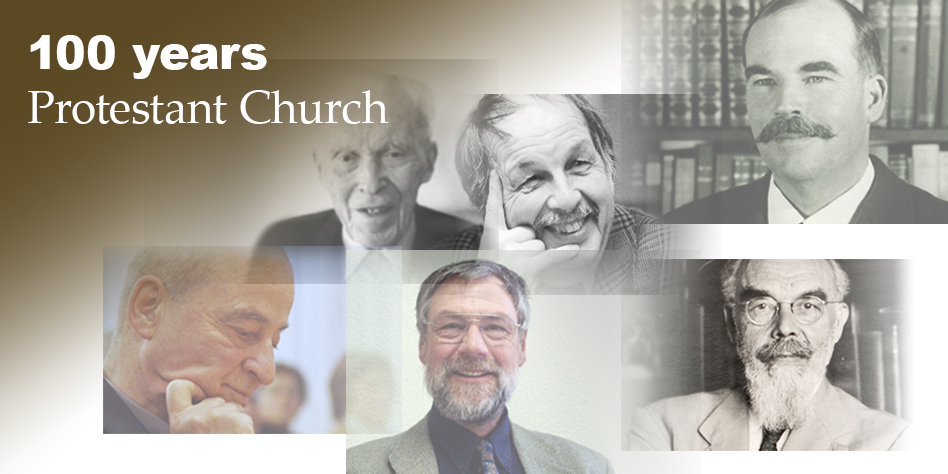
Prominent Figures
Trailblazers, prolific authors, benefactors
These prominent figures of the past 100 years shaped, inspired, and moved the Feder-ation through their thought and actions. The following short biographical sketches pre-sent the stories of some of these important figures.
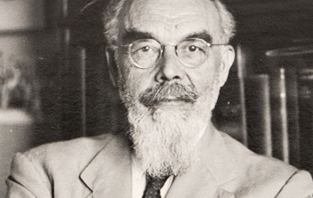
Adolf Keller, 1872–1963
Much more than just the first FSPC Secretary
Much has been written over the past several years on the ecumenical figure Adolf Keller, who did much to inform the development of the incipient Federation. He dedicated himself to his tasks with great enthusiasm and was a true cosmopolitan.
- From Rüdlingen, Canton Schaffhausen
- Active in the ecumenical movement
- From 1896, assistant pastor in the German Protestant Congregation of Cairo
- Pastor in Stein am Rhein and the Swiss German Congregation in Geneva
- From 1909, pastor at St. Peter’s in Zurich
- Nicknamed Weltadolf (“Adolf of the World”), as he was well travelled
- In 1919, the Swiss Church Conference sent the cosmopolitan and ecumenically minded Adolf Keller to the General Assembly of the Federal Council of the Churches in Christ in America in Cleveland. This would lead to a close relationship and collaboration. Keller returned home with the idea of a federation to meet the challenges of the post-war period.
- He was first Secretary of the FSPC from 1920-1941.
- Keller believed that the FSPC should provide orientation during conflicts of interest by underscoring commitment to ecumenical obligations.
- He led the European Central Office for Ecclesiastical Aid
- “God gave me the time, health, and strength for all these tasks”
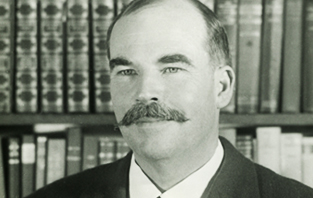
John Jeffries V, 1890–1964
The mysterious benefactor
John Jeffries, an American law graduate and bon vivant from Boston, is surely the most enigmatic figure in the history of the Federation of Swiss Protestant Churches. In 1964, the FSPC was the surprise recipient of his entire expansive fortune in accordance with his will. It was this unexpected financial boost that would make it possible for the Federation to purchase its current headquarters.
It remains lost to history as to why the rich American left his estate to the FSPC. Jeffries had never been a member of a church and only visited Switzerland a few times. He left behind the image of a spiritual seeker with a generous heart. In order to transfer his estate, the FSPC Board sent the lawyer Arthur Döbeli to the United States to conduct research in the states of Maine, Connecticut, California, and South Carolina. His 1967 report reads like a fascinating travelogue on the trail of the great mysterious benefactor.
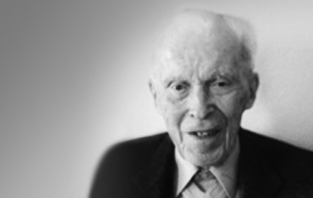
André Biéler, 1914–2006
- from Naters
- studied theology in Geneva and Basel
- Economics dissertation on Calvin’s economic and social thought (1959), forming the basis of his commitment to social issues
- On the occasion of the 400th anniversary of Calvin’s death in 1964, he was invited to hold a sermon at the annual assembly of the Federation of Swiss Protestant Churches in Neuchâtel. He applied Calvin’s thought to the present and suggested that the churches call for a reduction in military spending and for more aid to the Third World.
- Professor for Social Ethics at the Universities of Lausanne and Geneva (1967–1979)
- Delegate of the Federation of Swiss Protestant Churches to Ecumenical World Conferences in 1966 and 1968
- Co-founder of the Bern Declaration for developmental aid (1968) along with Lukas Vischer and Max Geiger, since 2016 Public Eye
- The signatories of the first Bern Declaration called upon Swiss politicians and citizens to bear Switzerland’s responsibility for the poorer countries of the Global South. They called for developmental aid and fair trade. The roughly 10,000 signatories committed to donating three percent of their income to a developmental organization.
- He supported the foundation of the FSPC’s Institute for Social Ethics
- In 1973, he wrote a short book with the title Le Développement fou (“The crazy development”), in which he compared humanity with a spaceship that was wasting its resources.
- Biéler supported recognition of conscientious objection to military service and spoke out against torture
- Served in 15 different pastoral offices throughout his life
- Viewed as a leading Protestant ethicist of the second half of the 20th century
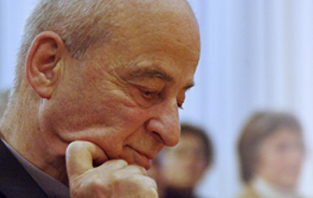
Lukas Vischer, 1926–2008
- From Basel
- Following his studies in Basel, Strasbourg, Göttingen, and Oxford, Lukas Vischer began his work at the World Council of Churches (WCC) in 1961 as a Reformed theologian. He served there as the Director of the Faith and Order Commission (1966–1979) and, as a WCC observer, followed the consultations of the Second Vatican Council in Rome from 1962–1965. Ecumenical affairs would play a major role in Vischer’s endeavors.
- Professor for Ecumenical Theology at the University of Bern
- Co-founder of the ecumenical working group on Churches for the Environment (OeKU, 1986) and the Bern Declaration (1968)
- Co-initiator of the Leuenberg Agreement
- Numerous travels led to contacts around the world and insights into the frequently difficult living situations of Christians and churches.
- 1980–1992, director of the Protestant Office for Ecumenism in Switzerland (office at FSPC headquarters)
- Attached to the FSPC and yet independent, the office worked on topics that have remained of ongoing importance to the FSPC through today as part of the process of seeking unity among Protestants and across ecumenical lines. Vischer’s publications included titles such as Wachsende Kirchengemeinschaft (“Growing Church Community”), Reformiertes Zeugnis heute (“Reformed Witness Today”), Was bekennen die evangelischen Kirchen in der Schweiz? “What do the Protestant churches in Switzerland believe?”, and Christliches Zeugnis in einer pluralistischen Gesellschaft (“Christian Witness in a Pluralistic Society”).
- Together with his wife, he founded the Swiss chapter of the International Federation of Action by Christians for the Abolition of Torture in 1981.
- Vischer was strongly involved in the work of the Swiss Ecumenical Committee for Justice, Peace, and the Integrity of Creation.
- As an observer at the Second Vatican Council (1962-65) in Rome, he mediated between the Catholic Church and the WCC. The WCC Declaration on Baptism, Eucharist, and Ministry (1982 Lima Document) developed under his auspices.
- FSPC Orthodoxy Commission
- Vischer was the initiator and a co-author of the first ecumenical church history of Switzerland (1994), which was meant as an attempt at understanding the past of the church and the Christian faith in Switzerland as a single common history.
- 1990–2008, member of the WCC Working Group on Climate Change
- Vischer was a mediator between church life and scientific research and between the local and universal church.
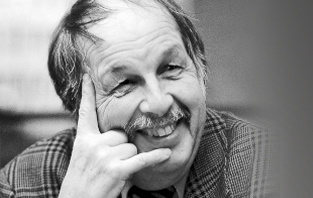
Hans Ruh, born 1933
- From Buch, Canton Schaffhausen
- Social ethicist
- Doctorate supervised by Karl Barth (1963)
- From 1963 to 1965, work at the Gossner Mission, East Berlin
- From 1965 to 1983, founder and head of the FSPC Institute for Social Ethics
- Co-initiator of the Bern Declaration
- 1970 Habilitation at the University of Bern
- 1971 to 1983, ausserordentlicher (associate) Professor
- Between 1983 and 1998, Full Professor at the University of Zurich and Director of the Institute for Social Ethics in Zurich
- He subsequently provided ethics consulting to companies and developed ethical financial products, in addition to his extensive activity as a speaker and author
- Supports an universal basic income
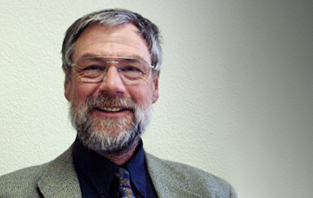
Hans-Balz Peter, born 1941
- From Zurich
- Studied economics, political ethics, and Protestant social ethics
- Doctorate in foreign economic policy and developmental policy, dissertation on the basic problems of developing countries
- Researcher at the Institute for Social Ethics of the Federation of Swiss Protestant Churches (FSPC) (office in Adliswil from 1971)
- 1983 to 2004, head of the FSPC Institute for Social Ethics in Bern, from 2002 to 2004 also head of the theology/ethics area of study at the FSPC
- Numerous publications on current issues in social ethics and economic, developmental, environmental, and political ethics and the ethics of peace in particular
- University instructor since 1984 and Professor for Social Ethics from 1989 to 2008 at Bern’s Department of Theology with a particular focus on economic and developmental issues
- Co-founder and Vice President (1988-2006), later President (2006-2012) of swisspeace/Swiss Peace Foundation in Bern (since 2012 President of the swisspeace support association)
- Peter views poverty in the countries of the “Third World” within the broader political context. The global goal of development should thus lie in the liberation of people so that they may develop themselves fully, am aim that emerged in the 1960s, with solidarity, and not self-interest, as the main motivation for cooperation with developing countries. Peter’s work has thus always centered on issues concerning the social responsibility of the church and connected opportunities for action, as well as criticism of the economic relations between industrialized and developing countries.